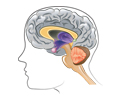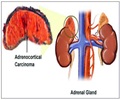Reduced initial cortisol levels serve as a predictor for retention in treatment programs for substance use disorder.

Cortisol Secretion Patterns in Addiction
Cortisol levels reflect a physiological response to stress. In this case, researchers found that participants who remained in the treatment program less than 90 days had significantly higher initial cortisol levels than those who remained in the program longer than 90 days.‘The study findings lead to cortisol as a biomarker that can help clinicians determine which individuals might need a more intensive therapeutic approach.’





Further, a Cox proportional hazards model indicated that elevated salivary cortisol, marital/relationship status and ACEs score correlated significantly with hazards of discontinuing the program early. Source-Eurekalert















